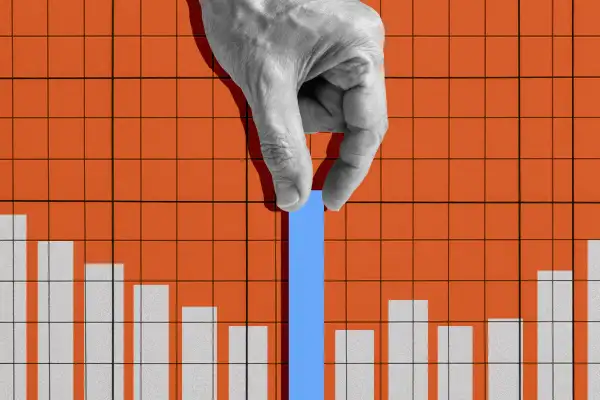Older Americans Now Own 80% of the Stock Market — Here's Why That's a Problem
Money is not a client of any investment adviser featured on this page. The information provided on this page is for educational purposes only and is not intended as investment advice. Money does not offer advisory services.

Americans 55 and older have a large and growing share of stock ownership, and that could prove to be a major problem for the market in the event of a downturn.
The share of equities held by people who are at or near retirement age (55+) has climbed to about 80%, up from 60% two decades ago, according to an analysis of Federal Reserve data by Rosenberg Research. And Americans 70 and older now have an "astonishing" 30% share.
“As the stock market breaks fresh highs, a sinister downside risk is lurking in the shadows — your grandma,” economist David Rosenberg said in a newsletter Wednesday.
Why should we worry about retirees owning so much of the stock market? The concern stems from the fact that older investors can’t weather a downturn in the same way as younger investors, who tend to have longer time horizons for their investments.
The S&P 500 hit a new record high earlier this month, and the index is up 22% in the past year. If the stock market takes a dip, older investors might decide it's a good time to sell equities in order to shift to less volatile investments like bonds or cash.
Older Americans own larger share of the stock market
At the end of 2019, the share of equity ownership by Americans ages 55 and over was lower — around 75%. A decade ago, it was roughly 70%, and 20 years ago it was only about 60%. This growth is a potential issue for the health of the market.
“Retirees don't have the luxury to buy and hold through a market downturn,” Rosenberg wrote. “If a downturn does materialize, demographically induced selling is a force that could exacerbate the spiral powerfully.”
The thinking goes that Americans who are at or near retirement age are more likely to sell stocks or even exit the market entirely if their portfolios start to take a hit because they’ll want to make sure they have enough money in retirement. This behavior could worsen a sell-off.
As older Americans' ownership share has risen, there's been a decline in the share of equities ownership by people ages 40 to 54. It's at about 15% currently, down from 20% a decade ago and roughly 30% in 1990, according to the report.
Keep in mind, however, that individual investors aren't the only holders of stocks. In fact, institutional investors own a majority of public companies' equities, according to Fed data. So while it's true that retirees have strong influence in the stock market and their behaviors are therefore important to understand, they're also not the only big players.
More from Money:
7 Best Online Trading Platforms
This Investing Phenomenon Could Be Why Bitcoin Prices Are Down After ETF Approval
Early Retirement Savers Are Burning Out. ‘Coast FIRE’ Might Be the Answer

